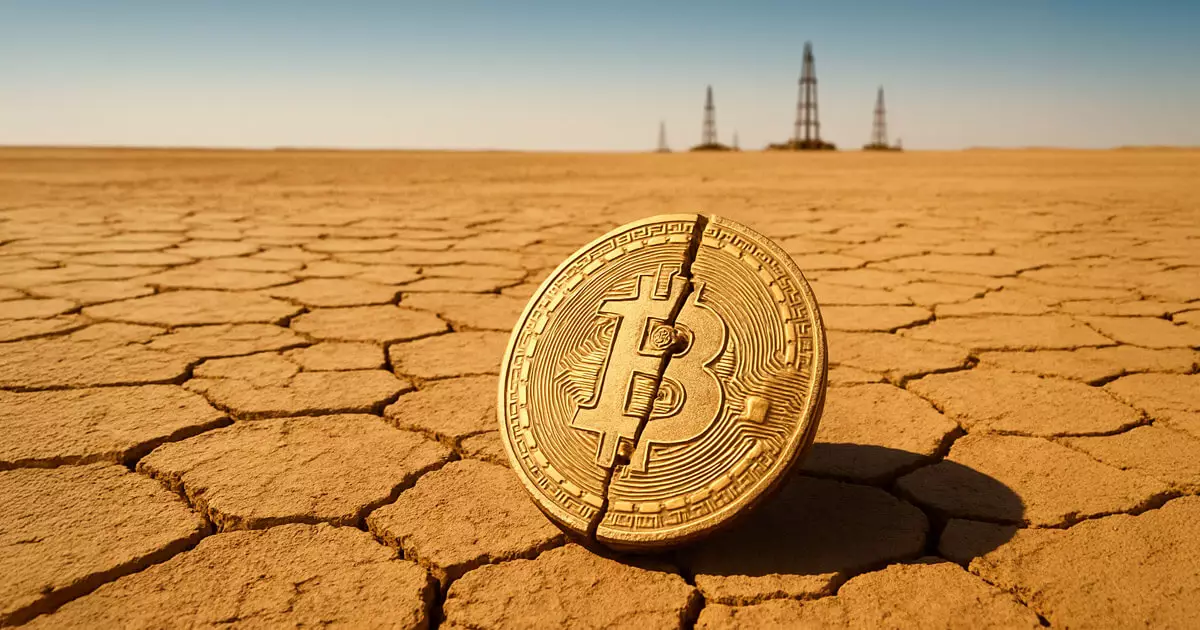Kuwait’s recent decision to outlaw Bitcoin mining raises eyebrows and questions about the nation’s approach to regulation and energy management. Citing the rampant power consumption linked to cryptocurrency mining, the Ministry of Interior has taken drastic action against operations that are deemed both unauthorized and a breach of several laws. This response speaks volumes about the government’s priorities and its stance on energy sustainability, but it also casts a shadow over the potential economic opportunities that digital currencies could bring.
The government’s claim that Bitcoin mining poses a threat to public safety is hard to dismiss entirely. The fear of overloading the electric grid is a legitimate concern, especially in a region where climate conditions can exacerbate energy consumption. However, this ban appears more reactive than proactive, failing to consider how other nations are capitalizing on the energy-intensive nature of cryptocurrency to foster economic growth.
An Inflexible Regulatory Environment
The timing of this ban aligns with a related crackdown by Kuwait’s Capital Markets Authority on crypto-related activities, suggesting a broader intent to tighten regulatory controls. While regulatory frameworks are indeed necessary to prevent exploitation and protect consumers, the approach Kuwait has taken feels overly stringent, especially when juxtaposed with nations embracing Bitcoin mining. In countries like El Salvador, where mining is powered by volcanic energy, and Russia, which has seen a rise in local mining through legalization, Kuwait appears to be burying its head in the sand.
This rigid regulatory environment may lead to missed opportunities for innovation in digital finance. Kuwait is restricting its citizens’ entrepreneurial spirit and limiting potential avenues for economic diversification. Instead of fostering a conducive atmosphere for technological advancement, the government is taking a regressive step backward, one that could stifle investment in what is undoubtedly a burgeoning global industry.
Chilling Innovation in the Name of Safety
While the intention behind regulating energy consumption is commendable, the execution fails to offer a balanced viewpoint. Cryptocurrencies and blockchain technologies have the potential to revitalize economies, particularly in developing regions, by creating jobs and attracting foreign investment. Moreover, the argument that Bitcoin mining endangers public safety must be reevaluated in a global context where many countries manage to balance mining activities with renewable energy sources.
The emphasis on safeguarding the infrastructure should not come at the expense of innovation. As countries like the United States develop frameworks to accommodate this emerging industry, it appears Kuwait may be locking itself out of future economic advancements.
A Call for a More Balanced Approach
What Kuwait needs is not a blanket ban but a nuanced approach that encourages responsible mining practices. By promoting discussions around energy efficiency, incorporating renewable sources, and establishing clear guidelines for legal operations, the country could position itself as a leader in responsible cryptocurrency mining rather than an adversary. The challenge lies not in outright prohibition but in finding common ground that allows for the growth of the digital economy while ensuring the health of its electrical grid.
In a rapidly evolving digital landscape, adopting regulatory frameworks that are adaptable and forward-thinking is crucial. Kuwait must recognize that restricting access and opportunities now could result in an economic vacuum that will only hinder the nation’s long-term goals. The focus should be on innovative solutions, not restrictive measures.

